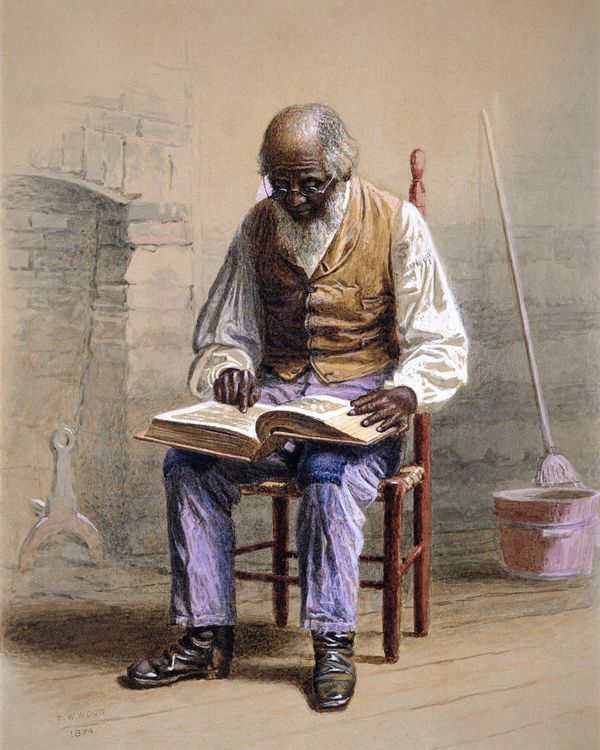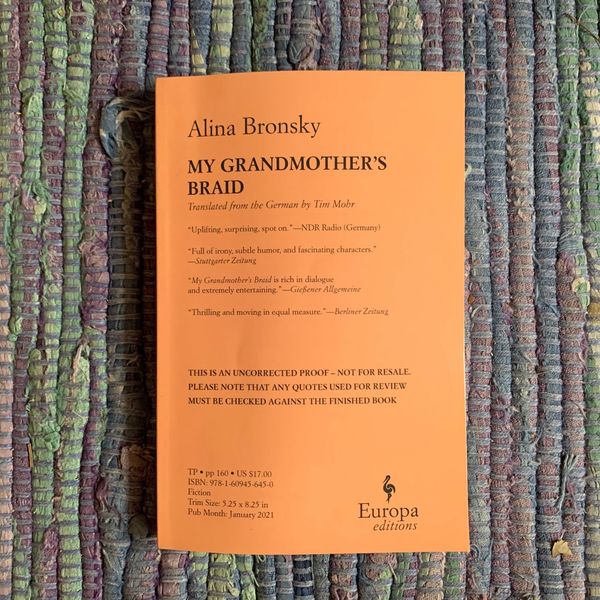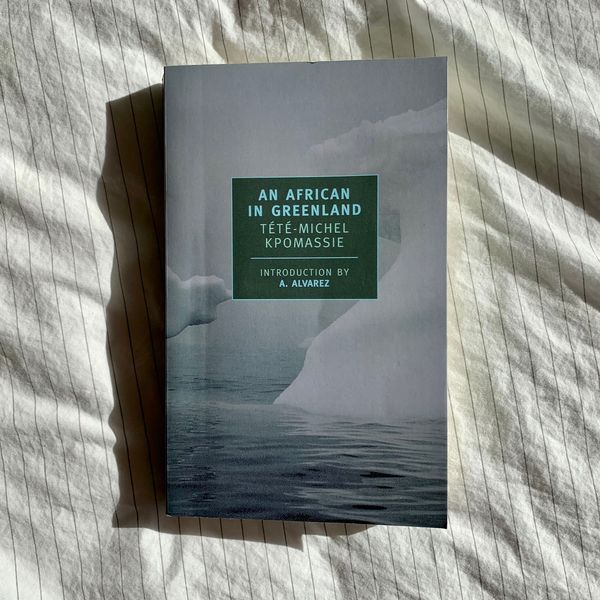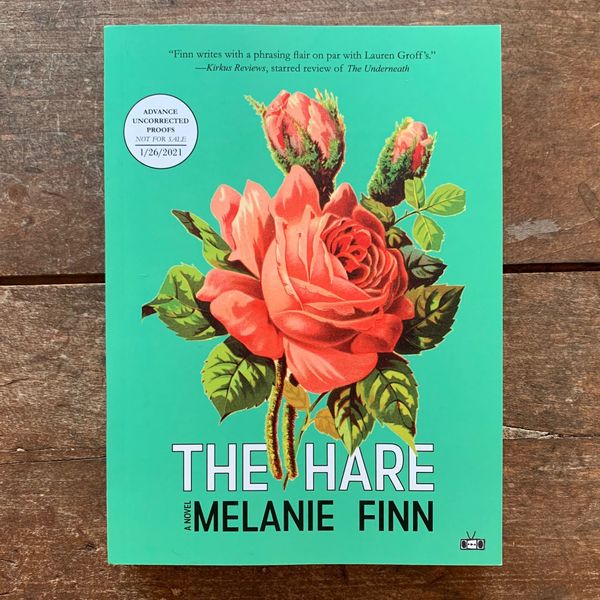
Watching a tree lose its leaves overnight is like watching a person take off her coat and—boom!—she’s buck naked underneath. Last month the trees outside my window went from fully dressed to bare-assed in what seemed like one instant. During a storm, one tree tipped over and landed in the arms of another, where it remains propped up to this day. I’ve been riveted by the fate of the semi-fallen tree. Is it dead, or can it continue to grow from its tilted position—and if so, will its weight eventually bring the second tree down, in a kind of arborial murder-suicide?
One day I went to examine the diagonal tree, being careful to remain out of its trajectory in case it decided to end things once and for all. The tree had shed some cones, which I collected and arranged across my desk. Sap was crystallized like maple sugar on the tips of each scale. Did you know that conifers have male cones and female cones? After googling, I was able to identify the fleet on my desk as 100 percent female. I spent more time chatting with those cones than I did with humans this month. Great listeners, all of them. Mostly we talked about books.
My Grandmother’s Braid by Alina Bronsky
Fiction, January 19
If you’re the kind of person who eats a small portion of bittersweet dark chocolate for dessert every night (I’m not, but I’d like to be), you might enjoy this small portion of bittersweet dark fiction. Alternatively, if you’re the sort of person who likes quantifying things, you might consider starting your year off with an extremely short novel, such as this one, purely for the satisfaction of “getting one under your belt.”
The titular grandmother is a sadistic lunatic who, along with her husband, has been charged with the care of their orphaned grandson, Max. The three Russians emigrate to Germany and live in a home for refugees, where the grandmother institutes a reign of domestic terror. She forbids Max from eating sweets, playing with other kids, or mingling with Jewish people; she tells him that he is “allergic” to human hair and has “a cursed appearance” that makes people want to beat him up, which might be the meanest thing a fictional grandmother has ever said. When Max’s grandfather sires a baby out of wedlock, things get even darker for this twisted little family.
Anyone struggling with an existential hangover from 2020 will find a certain “hair of the dog” relief in this comic feel-bad novel. Bronsky has a Dickensian flair for writing about miserable children—or, rather, the miseries of childhood.
RIYL: Ágota Kristóf, Elena Ferrante, disobedience, exaggerating, being stubborn, hoarding free condiments
An African in Greenland by Tété-Michel Kpomassie
Nonfiction, 1981
Tété-Michel Kpomassie is from Togo, a skinny West African country sandwiched between Benin and Ghana. While browsing at a bookstore as a kid, Kpomassie discovers a book about Greenland and becomes obsessed with somehow getting to the land of polar nights and granite cliffs. After spending eight years travelling northward, he finally boards a ship bound for the world’s largest island, carrying only a rucksack filled with a folding camera, some paper, and two pairs of mittens. “Don’t get crushed by an iceberg,” a commissioner helpfully warns.
Upon arriving in Greenland, Kpomassie is met with an excited crowd. It’s the first time the locals have seen a Black man, and they freak out. “For the children I was a fearsome supernatural being who came to exterminate the village,” Kpomassie explains to himself. The parents are more thrilled than intimidated by the stranger, and almost everyone offers to house him. Kpomassie settles in and makes observations: bloody seal broth is a staple food; sometimes an angry old man will commit suicide by walking out onto the frozen sea until he falls through a break in the ice; it’s really hard to pee when you’re wearing fur pants without a fly.
This is a classic work of anthropology written by a person who is clearly and nonchalantly brilliant, picking up foreign languages the way other people pick up dirty socks, and deploying words like “bodkin” and “calcined” in throwaway sentences. The photo insert is brief but electrifying.
RIYL: Anthropology in general, l’heure bleue, fantasizing about moving to a faraway place without warning, overproof spirits
The Hare by Melanie Finn
Fiction, January 26
Don’t make a fuss. Don’t get blisters on your feet. Don’t sweat. Don’t be pretentious, but also don’t be dimwitted. Don’t get pregnant. Don’t order drinks with maraschino cherries. Don’t ask questions. These are a few of the lessons drilled into Rosie Monroe, an art student at Parsons in the 1980s, by her hectoring, slippery boyfriend — an older gentleman she met when he hit on her at MoMA. Bennett introduces young Rosie to a WASP-y world of boathouses, silver butter dishes, and men who wear cravats with a straight face. It is unclear where his money comes from, or why he constantly goes on the lam in the middle of the night, but Rosie is swept up and gets pregnant and they move to a remote corner of Vermont. Bennett pursues sinister schemes while Rosie attempts to keep their tumbledown house heated, the baby fed, and the lights on. Soon it all goes to hell…
This is a page-turner about a tough woman and her con-artist lout of a partner, and I will eat my laptop if it doesn’t get optioned for TV or film the minute it hits bookshelves. It is also woven through with ideas about feminism, parenting, narcissism, and self-sufficiency — a book that is easy to read without being remotely lightweight. It is published by Two Dollar Radio, a small press out of Columbus, Ohio, which I think of as the Barry Bonds of small presses: They hit an astonishing number of home runs.
RIYL: Lauren Groff’s Fates and Furies, being up at the crack of dawn, steeping in the delusional brew of your own mind
WHY DON’T YOU …
• DANCE LIKE NOBODY’S WATCHING with this miniature book of “aphorisms and otherisms,” all exactly the length of 17 words — perfect for fans of Jenny Offill, Wayne Koestenbaum, Lydia Davis…
• Break a world record for how fast you can turn pages with this memoir about an ICY PLANE CRASH, an eccentric father and the ART OF SURVIVAL?
• Ask yourself whether Madeleine Watts might become to Australia what Joan Didion is to CALIFORNIA?
• Board a Cornish fishing vessel and learn to GUT A FISH so that its viscera come out “in a single strand, like the magician’s trick of bringing out a stream of colored handkerchiefs”?
• Ask yourself “What if Downton Abbey took place in the American South and was significantly more EVIL?” and then answer that question.
• Momentarily occupy the consciousness of a SAUDI ARABIAN EMIGRANT living in Ohio in the 1970s?
SUGGESTED PAIRING
Winter is peak season for all things “hardboiled,” including eggs, wool, and detective novels. I don’t have any hot tips re: the first two, but I’d love to introduce you to the Walter Mosley of Japan.
Every editorial product is independently selected. If you buy something through our links, New York may earn an affiliate commission.
More From This Series
- Matrix and 9 Other Reads I Can’t Get Out of My Head
- The Listening House and 9 Other Reads I Can’t Get Out of My Head
- The Plot and 8 Other Reads I Can’t Get Out of My Head





